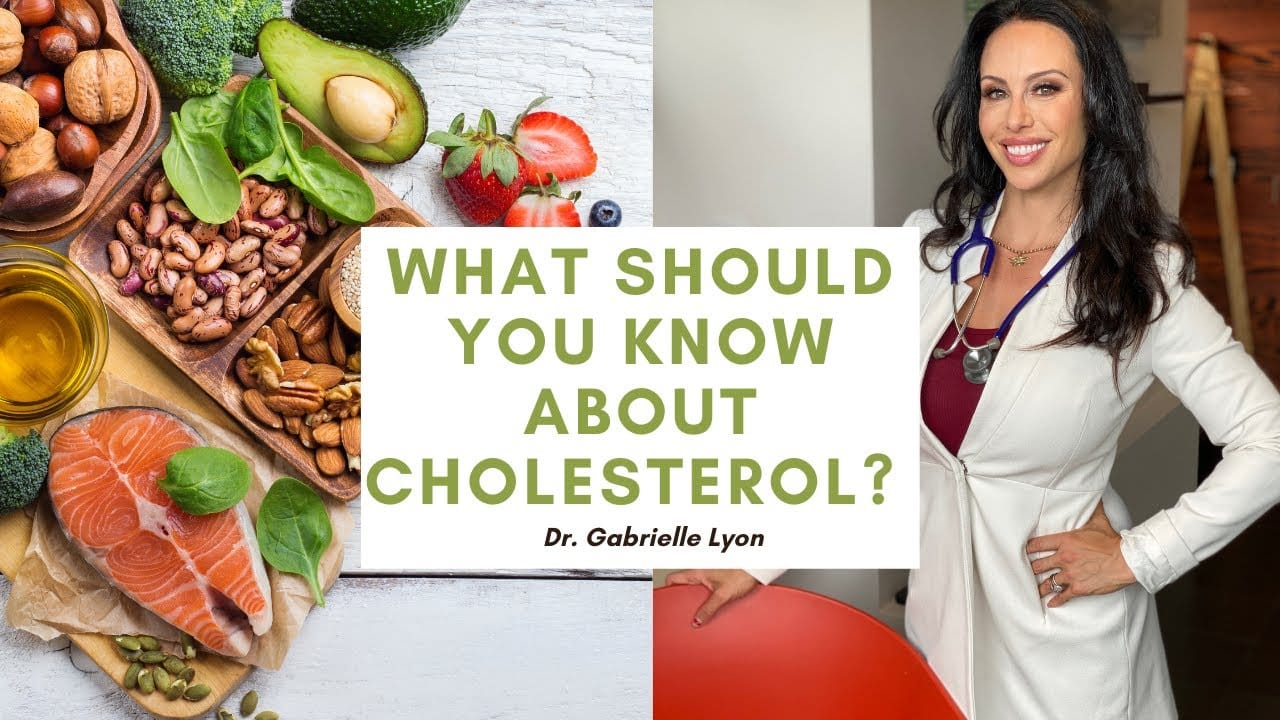Summary:
– Cholesterol is often misunderstood and demonized, but it is an essential substance in our bodies.
– There are two types of cholesterol: LDL (bad) cholesterol and HDL (good) cholesterol, and they play different roles in our health.
– Diet and lifestyle factors can influence cholesterol levels, but genetics also play a significant role.
– High cholesterol levels can increase the risk of heart disease, but it is essential to consider other factors, such as inflammation and insulin sensitivity, when assessing cardiovascular risk.
– Lifestyle modifications, including a healthy diet and regular exercise, can help improve cholesterol levels and reduce the risk of heart disease.
Cholesterol – a word that has become synonymous with danger, disease, and clogged arteries. But is it as criminal as it’s made out to be? In this article, we’re delving into the fascinating world of cholesterol and uncovering the truth about its role in our bodies. Prepare to be amazed!
Let’s start with the basics. Cholesterol is a waxy, fat-like substance naturally produced in our bodies. Yes, you heard that right – our bodies make cholesterol! It plays a crucial role in various bodily functions, including cell maintenance, hormone production, and the synthesis of vitamin D. Without cholesterol, our bodies wouldn’t be able to function correctly.
You might have heard about two types of cholesterol: LDL and HDL. LDL, or low-density lipoprotein, is called “bad” cholesterol. This is because high LDL levels can contribute to plaque buildup in our arteries, increasing the risk of heart disease. On the other hand, HDL, or high-density lipoprotein, is known as the “good” cholesterol. HDL helps remove excess cholesterol from our blood vessels, reducing the risk of heart disease. So, it’s not as simple as labeling cholesterol as solely “bad” or “good.”
It’s essential to understand that a range of factors influences cholesterol levels. Diet and lifestyle play a role, but genetics also play a significant part in determining cholesterol levels. Some people may have a genetic predisposition to high cholesterol, regardless of their dietary choices. This doesn’t mean that diet doesn’t matter – it does. A diet high in saturated and trans fats can raise LDL cholesterol levels, while a diet rich in fruits, vegetables, and whole grains can help promote healthy cholesterol levels.
But let’s not forget about a critical player in the cholesterol game – inflammation. Inflammation can lead to increased LDL cholesterol and reduced HDL cholesterol levels. A poor diet, lack of exercise, stress, and other lifestyle factors often cause inflammation. So, it’s not just about cholesterol levels; it’s about the overall health of our bodies.
Insulin sensitivity is another crucial factor to consider when assessing cardiovascular risk. Insulin is a hormone that helps regulate blood sugar levels. When our bodies become resistant to insulin, it can lead to high blood sugar levels, contributing to high cholesterol levels and an increased risk of heart disease. So, it’s not simply about cholesterol but how our bodies process and utilize energy.
Now that we understand the complex world of cholesterol better let’s talk about how we can keep our cholesterol levels in check and reduce the risk of heart disease. Lifestyle modifications are essential. A heart-healthy diet, rich in fruits, vegetables, whole grains, and lean proteins, can help improve cholesterol levels and reduce inflammation. Avoiding foods high in saturated and trans fats, such as fried and processed foods, is also essential.
Regular exercise is another powerful tool in our arsenal against high cholesterol. Exercise helps boost HDL cholesterol levels, improves insulin sensitivity, and reduces inflammation. Aim for a combination of cardiovascular exercises, such as jogging or cycling, and strength training exercises at least three to four times a week.
Medication may be necessary if lifestyle modifications alone aren’t enough to control cholesterol levels. Statins, a class of drugs commonly used to lower cholesterol, can be prescribed by a healthcare professional after thoroughly assessing your risk factors.
So, cholesterol – is not the villain it’s often made out to be. It’s a vital substance in our bodies, playing various roles in maintaining our health. However, it’s essential to keep an eye on our cholesterol levels and take steps to promote a healthy heart. Focus on a balanced diet, exercise regularly, manage stress levels, and listen to your body. Your heart will thank you!
*****
Source Description
In this video, we discuss:
– The issues with some scientific studies.
– Dietary cholesterol and blood cholesterol.
– How the cholesterol you eat doesn’t translate to your blood cholesterol.
– You only absorb 50% of what you eat; the more cholesterol you eat, the less you naturally produce.
– How short-term changes in cholesterol is possible, but your cholesterol has a set point in terms of long-term changes.
– The effect of insulin on cholesterol.
– Why carbohydrates may be a problem.
https://drgabriellelyon.com/
https://www.instagram.com/drgabriellelyon/?hl=en
*Affiliate Disclaimer:
Note that this description contains affiliate links that allow you to find the items mentioned in this video and support the channel at no cost. While this channel may earn minimal sums when the viewer uses the links, the viewer is not obligated to use these links. Thank you for your support!
Disclaimer: The Dr. Gabrielle Lyon Podcast and YouTube are for general information purposes only and do not constitute the practice of medicine, nursing, or other professional health care services, including the giving of medical advice, and no doctor/patient relationship is formed. The use of information on this podcast, YouTube, or materials linked from this podcast or YouTube is at the user’s own risk. The content of this podcast is not intended to be a substitute for professional medical advice, diagnosis, or treatment. Users should not disregard or delay in obtaining medical advice for any medical condition they may have. They should seek the assistance of their healthcare professional for any such conditions.


